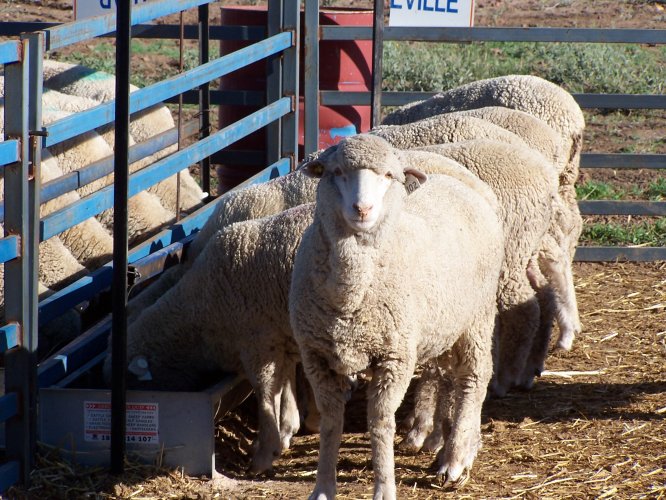
Lambs at a feed trough. Picture: Sheep CRC.
ANIMAL food manufacturers are being reminded to check the approval status of any imported biological ingredients intended for livestock products.
The Department of Agriculture, Water and the Environment said it is reminding importers, distributors and manufacturers that they must have approval from the department to use imported plant and animal-derived ingredients in the manufacture of animal feeds.
Chief Veterinary Officer, Dr Mark Schipp, is encouraging those who manufacture animal feed products to contact their supplier or trader to confirm that each imported biological ingredient is approved for animal feed use.
“Feeding imported human food ingredients to Australian animals could introduce serious animal diseases, like foot and mouth disease or African swine fever if the goods have not been assessed and approved for this high risk end use.
“Diseases such as African swine fever, would be devastating for Australia’s $1.2 billion pork industry, as well as threaten our trade, environment and economy if there were an outbreak in Australia,” Dr Schipp said.
“Waste and by-products from domestic manufacturing processes also present a significant biosecurity risk if they contain biological materials and are fed to Australian animals.
“If you distribute imported ingredients you should inform buyers of any end use restrictions and provide copies of relevant import permits,” he said.
“Biosecurity is everyone’s responsibility and we must all be biosecurity aware.
“When the department receives an import permit application, our scientists undertake thorough biosecurity risk assessments based on the intended end use of the imported goods,” Dr Schipp said.
“Import conditions are also applied to ensure that the goods are processed and used safely for the intended end use.
“Australia is fortunate to remain free from many of the world’s most serious animal diseases.”
Dr Schipp said animal diseases could have serious consequences for Australia’s agricultural industries including reduced animal productivity, loss of income, disruption to supply chains, loss of export opportunities, and high costs from managing such an outbreak if introduced in Australia.
Learn more about Australia’s import conditions for animal and plant ingredients for animal feed manufacturing at awe.gov.au.

HAVE YOUR SAY